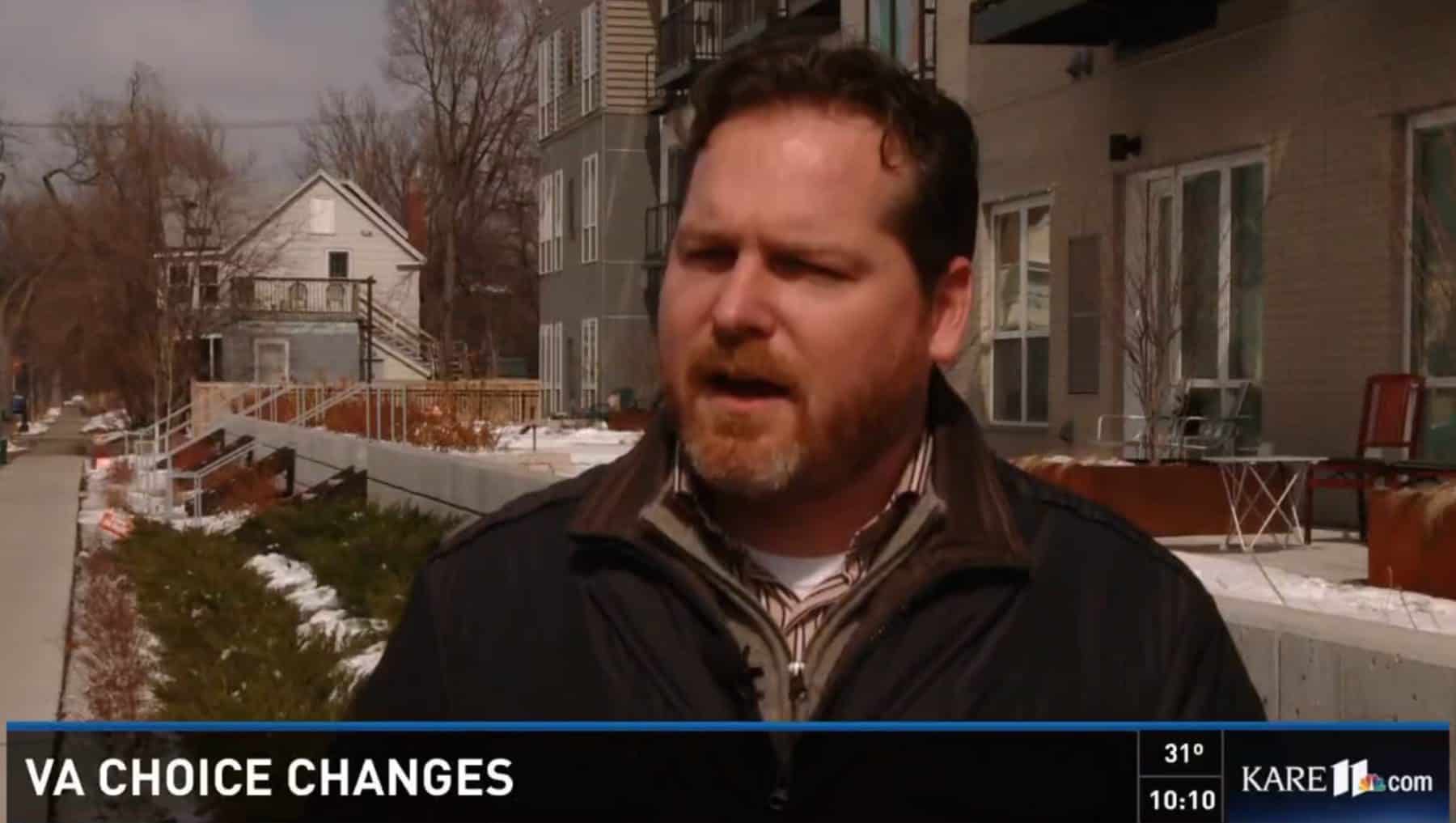MMQB: Military, Veterans Benefits Cuts eyed by CBO Report and Congress
It looks like budget talks are going to set their sights on cuts to military pay and veterans benefits for yet another year. At the same time, elements within Congress are looking to expand health care to rural communities across the country.
Apparently they (mostly Democrats) did not get the memo about the focus of the cuts, but I’ll be touching on that and more this MMQB.
Hi and welcome to this edition of Monday Morning Quarterback for Veterans. I am your host, Benjamin Krause, creator of the DisabledVeterans.org website.
Here is what I’m covering today:
- Specific CBO proposed cuts on military and veterans benefits
- MOAA forecasts impact of cuts on military retirement
- Why a “moral” argument against cuts fails to win the day
- Expansion of Mental Health Care to Rural Vets Proposed
Skip to whatever topic interests you or read the whole thing.
CBO looks to Military and Veterans Health Care for cuts
The biggest thing in the news right now regarding military and veterans benefits are the current budget cuts looming. In this section, I’ll focus on the health care cuts, but the cuts are really across the board.
As stated, once again, Congressional Budget Office (CBO) has identified Military and VA Health Care as sources of cuts to government spending.
Cuts to military TRICARE would result in $20 billion in “savings” from 2015 to 2023 if you can all it that.
I call it $20 billion in ripping off American serivcemembers and retirees after previously promising to cover all health care.
CBO also suggested removing Category 7 & 8 veterans from eligibility lists for VA Health Care – this came up in 2011, too. This cut means veterans with incomes over $33,000 and zero percent ratings will be ineligible for care. The cut would result in another $48 billion in reductions.
In my opinion, this is yet another example of how devoid of moral direction our country really is. We make promises to many people, including servicemembers, but those in DC can decide to break those promises any time they like. Hypocritically, when it comes to serving or being drafted, don’t dare violate your military service agreement, or you’ll get locked away.
Back to TRICARE. The CBO said that TRICARE Prime beneficiaries should pay $550 for single party coverage per year. Families would pay $1,100 for coverage. Copays for both would be higher.
Users of TRICARE Standard would pay an annual deductible of $350 for single party coverage. Families would pay $750.
In 2011, I wrote an article called, Republicans seek to Cut Benefits for Disabled Veterans. At that time, there were two Republican plans to cut VA spending by a few billion.
One proposal to cut $4 billion came from Republican Congresswoman Michelle Bachmann (MN). She proposed cuts to disability compensation.
Another proposal came from Republican Congressman Paul Ryan to save $6 billion from VA Health Care spending. Paul Ryan’s plan called for dropping low priority veterans from VHA care.
The plan would have left 130,000 veterans without any form of health care. The argument of those supporting the cuts was that since these veterans are not considered disabled – they would have disability ratings of “0” – then they do not deserve free care from VA.
The problem with this position is that it ignores the fact that many veterans struggle for years to get a proper disability rating. While fighting for their benefits, these veterans would be denied health care. If Paul Ryan and friends got their way, they think that would be okay.
The cuts are not just focused on health care, either. CBO proposed closing commissaries and reducing military retirement. They have also supported cutting benefits by changing how COLA is measured – the Chained Consumer Price Index versus the Consumer Price Index (CPI).
CBO, Rep. Paul Ryan and friends seem hell bent on reducing these kinds of expenditures. The push comes up every year and receives a particularly huge shove every two years.
These kinds of cuts, initially proposed by CBO, almost always get approved over time. So, we should either expect the cuts if we sit back and do NOTHING, or fight back and win for another year.
Source: Fed Week
https://www.fedweek.com/item-view.php?tbl=4&ID=3891
Military Officers Association of America forecasts Impact of Retirement Cuts on Enlisted and Officers Pensions
I thought MOAA did a good job summarizing how the cuts proposed by Rep. Paul Ryan and Sen. Patty Murray would impact veterans after retiring from active service.
Here is what they said about the yearly impact:
Servicemembers who retire at the 20 year point would feel the full negative financial effects of the proposal with the reduction of their retired pay by nearly 20 percent by the time they reach age 62.
For example, an E-7 retiring this year with 20 years of service would see an average loss of over $3,700 per year by the time he or she reaches age 62. For an O-5, the average annual loss would be over $6,200.
MOAA President Vice Adm. Norb Ryan (USN-Ret) stated, “A 20 percent reduction in retired pay and survivor benefit values is a very substantial cut in military career benefits and does not represent good faith to our men and women in uniform.”
The proposal flies in the face of the principles that guide the ongoing congressionally-mandated review of military compensation and retirement.
Source: Military Officers Association of America
Why a “moral” argument against cuts fails to win the day
While most people seem to be on the same page about whether or not cuts to military pay and VA benefits is bad – most people think they are bad – there is some disagreement as to WHY it is bad.
The Editorial Board of The News Virginian fell into this trap in writing their Op Ed on the matter of cuts. Rather than creating an argument that could sway those who would support such cuts, they focus instead on the moral issue of cutting benefits after sending people to war.
Meanwhile, those they are arguing against are the Wall Street tycoons and Koch Brothers types who could really care less about moral arguments. It’s more about the bottom line.
These same individuals are the ones funding most of our politicians and who ultimately are pushing policy research like what the CBO has supported for the past few years about these cuts.
While the Op Ed does touch on some good points, it misses the mark that could sway supporters of the cuts. Every day that goes by is another day where we miss the chance to convince those who support these cuts.
Why we can cut benefits and get away with it, for now
First of all, the argument that supports the cuts claims to be based on basic economics. It claims that good pay and additional benefits are not required because people enlist anyway, cuts or no cuts. Researchers say Americans will enlist in large part from lower socioeconomic classes that do not have a lot of opportunity because they do not have a lot of opportunity.
Why cuts are bad in the long run
A good counter-argument would be that by reducing benefits, America could experience a reduction in the quality of the candidates for military service. Families that previously would have encouraged their children to enlist will diminish for two reasons.
First, families with options that are not socioeconomically disadvantaged will be less inclined to encourage military service because the benefits are not as good. These same potential soldiers will seek alternative ways to gain experience and display patriotism.
Second, these same families will see the disgrace that is the way we treat veterans and strongly discourage service. They will see that America does not stand behind its promises and will cut benefits after service. They already see how America does not stand behind its promises to insure veterans through disability compensation and related programs.
Third, those who stand to gain the most from a strong military, generally the upper 1% whose business, yachts, and vacation homes are all protected, are ironically on the side of the cuts because no one is making the counter argument about the impact of the cuts in the long term.
Evidence of military quality erosion
We are already seeing the evidence of an erosion of the quality of the soldier candidate pool within the cultural deficits of the military.
- Rape is seemingly more common today than it ever has been.
- There are more gang members in military service now than ever before.
- We send our troops into battle without proper equipment.
These issues have the same root, and at the root are policies that have led to the gradual erosion of our American military culture well before Vietnam.
The first attack against the traditional American military culture in this modern era is considered the end of the draft by some. The second, third and forth are the trends toward an overall failure of Washington, D.C. to honor its promises to our troops while on the battlefield and off.
What would Superman say?
In the 1940’s, the creator of Superman and retired Army officer, Major Malcolm Wheeler-Nicholson, warned repeatedly about the potential impacts of an eroded military culture.
He was concerned about a military were sexual misdeeds were encouraged rather than the military of old where all deeds were evaluated. He was also concerned about military equipment being inferior than what modern research could provide.
In WWI and WWII, body armor was either not used or inferior to what could reduce 80% of injuries. US helmets were inferior to those of many other militaries across the world, including the Germans.
America and our military culture did not heed his warnings.
The impacts of military cultural erosion and why rich Americans should care
We are marching in that same direction today and showing no signs of reversing. Policies that cut military pay and veteran benefits will only further the goal of those in high places who seek to diminish America’s military capabilities and foreign influence.
Meanwhile, those who seem to support those goals, mainly high level Koch Brothers-types, fail to recognize that these same policies that erode our military will cause the downfall of the same military they rely on to protect their property.
Do they think for one second that a Chinese take-over of the Unites States would also allow them to keep their grandiose lifestyles? Hell no.
So, while I appreciate more moralistic arguments about why it is bad to violate our promises to servicemembers and veterans, the bigger harm could come with a weakened military. And to me, that is the better argument to make.
Here is the moralistic argument I was talking about. It is a similar argument MOAA and others have been making, but I believe the Military Strength/National Security argument I just made is a stronger one:
You don’t balance a budget on the backs of military veterans. That should be common sense. These men and women go out and serve their country, they fight in wars and spend months, even years away from home. And so, as a way of saying thanks, the House of Representatives approved a budget this week that would cut the cost of living raises for military pensions by 1 percentage point for any retirees who aren’t disabled and are younger than 62.
Now on the surface, that doesn’t sound so bad. A one percentage point cut, that’s no big deal, right? It is when you consider that most veterans retire from active service well before the age of 62. Here at the News Virginian, we have several family members who either currently serve or have served in the past. It wears on you, that active duty assignment, both physically and mentally, so the average age of retirement is much lower than for the rest of the country.
The Military Officers Association of America took an average enlisted soldier, estimated that he or she retired at age 40 and then projected what the impact of this cut in the cost of living adjustment would be on that person. A solder retiring at age 40 would lose an estimated $83,000 within 20 years. An officer who retires at age 42, the association projected, would lose an estimated $124,000. As veterans and their families will tell you, that’s real money. These men and women don’t automatically have another job to fall back on, once they leave the service and so that pension helps pay bills for their families.
You don’t look first to veterans as a way of saving money. Yet, this is what happened in the House of Representatives. Republicans and Democrats agreed on a proposed two-year budget this week but balanced it not by cutting back on programs or capping expected growth in future years. It was done all through “new revenue”. As we cover on the front page of today’s paper, it goes beyond military pensions to higher airline security fees and other new revenues that officials made clear aren’t taxes. Whatever you call them, they still take more money from your pocket.
This is how we balance our budget? That’s real money coming out of the wallets of people who have served their time and deserve to be respected, not taken advantage of. If we’re determined to cut defense spending, there are programs that can be scaled back, fewer aircraft to produce.
Or, if Congress truly wants to convince the country that it has the best interests of the public in mind, each member could look at their own salaries. From 2009 to 2012, the Congressional website says lawmakers made $174,000 each year. Looking over the last 20 years from 1993 to 2013, Congress approved a raise of $40,400 in their own annual salaries. If we’re being asked to cut back, that seems like a good place to start.
Now yes, Congress can’t make any law to change the salary provided for the current session. But if all options are on the table, why not agree to scale back that pay for the next session? Why is it acceptable for members of Congress to keep their salaries at the current rate, but cut back on the cost of living adjustment for military pensions?
Instead of making sacrifices, they found extra money by stealing it from veterans. That to us is beyond disgusting.
Source: The News Virginian
Expansion of Mental Health Care to Rural Vets Proposed
U.S. Rep. Ann Kirkpatrick, D-Ariz, has recently introduced legislation to expand access to mental health care for veterans living in rural America.
The call to action for the legislation focuses around the needs of Native American Veterans living on reservations across the country.
Rep. Kirkpatrick stated, “Simply because of where they live, rural veterans may lack access to quality mental healthcare through VA.” She went on, “These men and women have served our country, often in dangerous, faraway places, so it’s our duty to ensure they can get quality care when they come home.”
VA head of Public Affairs, Dr. Tommy Sowers, had this to say in support of the cause, “This is important, this is everyone’s VA – it is very important that tribes have the access they need in the burbs.”
Kirkpatrick’s bill is called the Rural Veterans Mental Health Care Improvement Act, which is tied in with companion legislation with Senator Jon Tester.
The Rural Veterans Mental Health Care Improvement Act would:
— Include licensed professional mental health counselors and marriage and family therapists as participating professions in the VA’s flagship recruitment program, the VA Office of Academic Affiliations’ Health Professionals Trainee Program. This would allow VA to cultivate its mental health workforce in rural areas where such services are often scarce.
— Provide VA with flexibility to include critical IT funding in advanced appropriations that would provide for the timely replacement of medical equipment and allow the development of medical information systems to continue without interruption.
— Strengthen language authorizing VA to provide mental health services and support to immediate family members of veterans who served in Iraq and Afghanistan and are readjusting to civilian life.
— Require the VA to identify and report to Congress on issues that may be impeding the provision of telemedicine services to veterans, and to identify steps to address these issues.
Source: Indian Country






初来乍到,支持下
Understanding all of this is like Trying to read Chinese, But,…. Maybe you`re Right! .